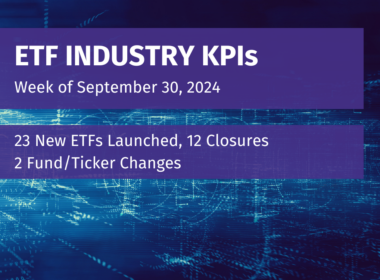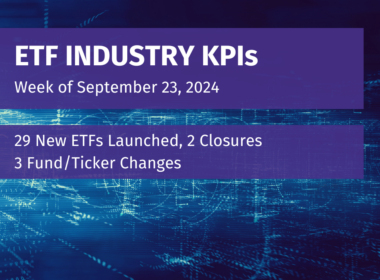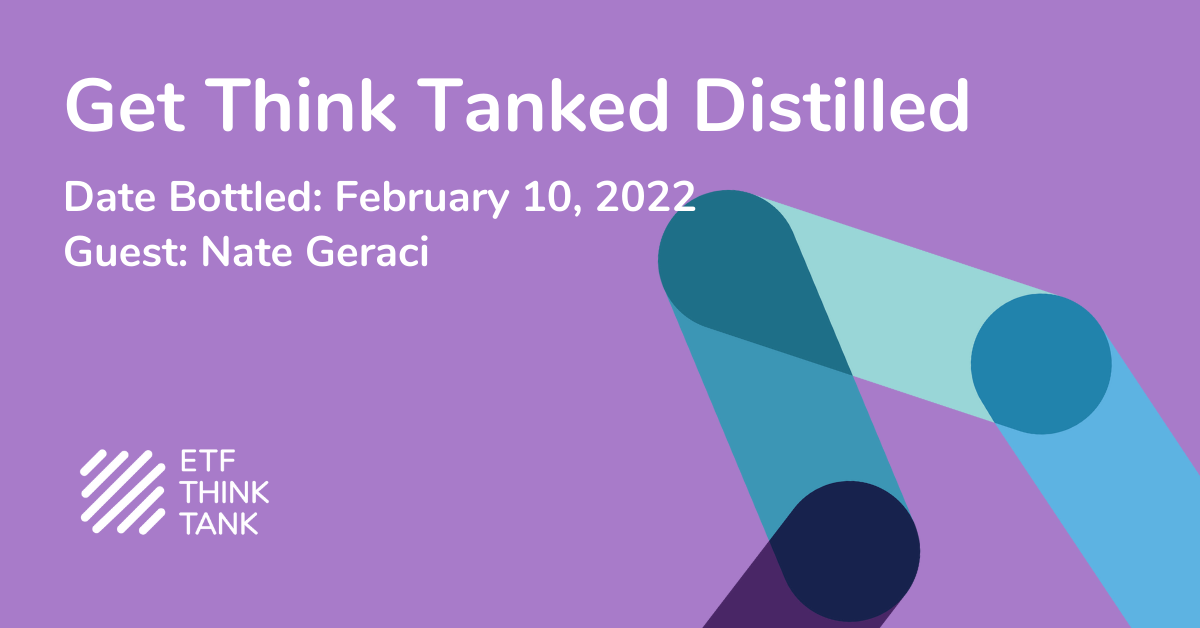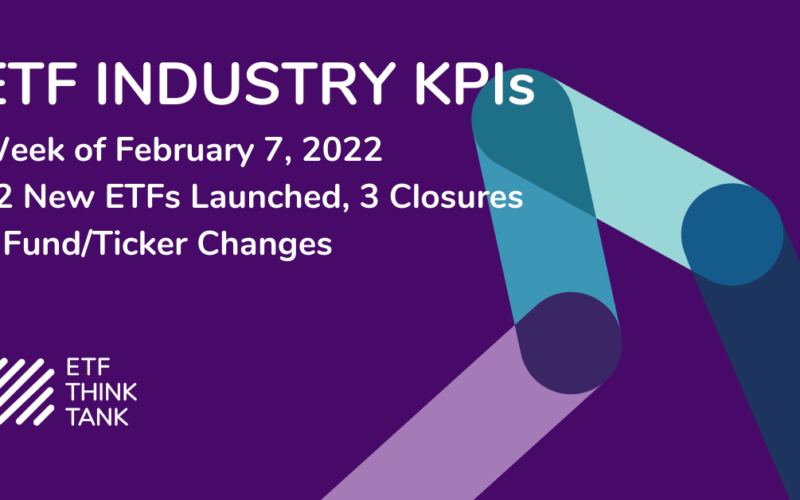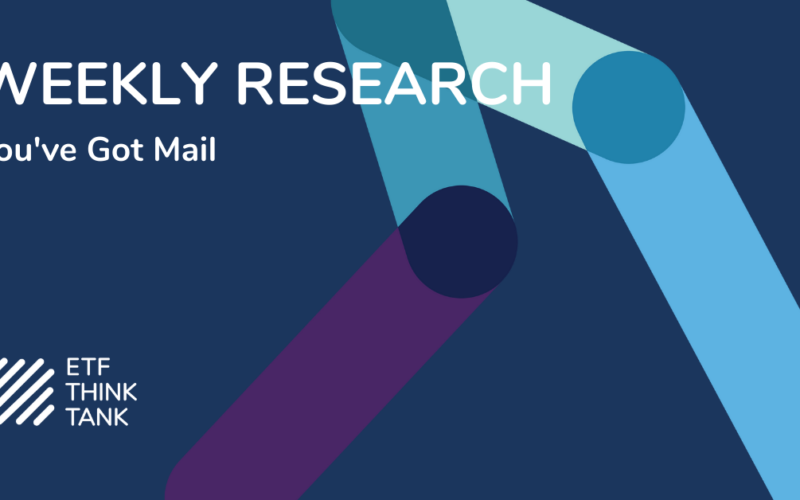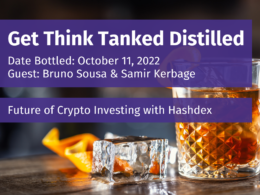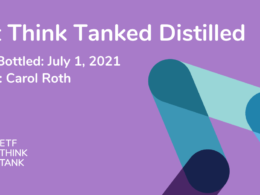Nate Geraci, the president of investment advisory firm The ETF Store, host of the ETF Prime podcast and founder of ETF Institute, is back in the ETF Think Tank. He returns to offer his latest thoughts on topics, including how to expand ETF education, how to increase adoption among investment advisors, and what he thinks does and doesn’t work in the ETF space.
The conversation began talking about the increase in retail traders since the advent of the COVID pandemic and whether or not commission-free trading is contributing to some dangerous behaviors. Geraci sees it two different ways. On one hand, commission-free trading has been a gateway for newer investors and perhaps the best way to get experience is to get involved. On the other hand, it can encourage people to engage in behaviors without fully understanding the downsides. It can cause overtrading and lead people to things, such as options, and it can cause people to lose real money.
A lot of advisors have adopted ETFs for their clients, but many still haven’t. Geraci says that the average age of an investment advisor is high, and many are still focused on commission-based mutual funds. Unfortunately, many decisions are made based on how the advisor is incentivized. Change on the ground has been slow. These individuals tend to be well-versed in investments, but not so much on ETFs. The need for education is high. ETFs don’t come with commissions, so there may not be an incentive to change. The perception among many is that ETFs are simply passive index products.
There’s a feeling that retail investors could help drive this adoption. There is a big demand from individuals, especially younger investors, to use ETFs and there is pressure on advisors to be knowledgeable about them. Even at $7 trillion in assets in the United States, the market for ETFs is still in its early stages. Geraci estimates that more than half of new clients had zero ETFs in their portfolios prior to arriving. Family offices, in particular, could use education on ETFs.
As mentioned earlier, Geraci is the founder of the ETF Institute, which offers the Certified ETF Advisor designation to industry professionals. It was originally established 10 years ago to provide a public ETF education option, something which hasn’t existed, and covers all of the core concepts that investors and advisors should know about ETFs. It’s designed to cover all the relevant foundational materials and solves a real training issue. Geraci feels this can be beneficial not only to advisors, but to anyone tangentially involved in the industry, including back-office staff and wholesalers.
Other key takeaways:
- One key question Geraci is looking forward to seeing answered is how first year investors will handle the next 5-10 years. Meme stocks and altcoins are getting hammered right now. Will it result in them becoming more diversified?
- What stands out in terms of product development trends? The smaller boutique firms that are capitalizing on ETFs and rolling out their strategies in an ETF wrapper. Launch costs and complexity coming way down have allowed mostly unknown issuers to enter the market.
- What makes you feel like a product is going to work? Many ETFs aren’t going to be successful because there are so many issuers in a highly competitive space. If you have a built-in asset base, you can bring those clients over and make it successful. If you are starting from ground zero, it will be very difficult. The active strategies with high active share still have some opportunity. The beta and smart beta spaces are pretty much fully covered. Successful products must be something new.
- Why aren’t more niche products, such as restaurant ETFs, working for advisors? Optics play a big role, and many advisors perceive thematic ETFs as gimmicky. Issuers can make the business case, but advisors have trouble explaining it to clients.
- Transparency in the ETF industry is mostly a positive thing, but it makes it easier for competitors to copy existing products. It is a problem that we cannot protect intellectual property and ETF innovation because a big issuer can swoop in, take the idea, and offer it cheaper. Investing is the ultimate copycat sport.
Disclosure
All investments involve risk, including possible loss of principal.
The material provided here is for informational purposes only and should not be considered an individualized recommendation or personalized investment advice. The investment strategies mentioned here may not be suitable for everyone. Each investor needs to review an investment strategy for his or her own particular situation before making any investment decision.
All expressions of opinion are subject to change without notice in reaction to shifting market conditions. Data contained herein from third party providers is obtained from what are considered reliable sources. However, its accuracy, completeness or reliability cannot be guaranteed.
Examples provided are for illustrative purposes only and not intended to be reflective of results you can expect to achieve.
The value of investments and the income from them can go down as well as up and investors may not get back the amounts originally invested, and can be affected by changes in interest rates, in exchange rates, general market conditions, political, social and economic developments and other variable factors. Investment involves risks including but not limited to, possible delays in payments and loss of income or capital. Neither Toroso nor any of its affiliates guarantees any rate of return or the return of capital invested. This commentary material is available for informational purposes only and nothing herein constitutes an offer to sell or a solicitation of an offer to buy any security and nothing herein should be construed as such. All investment strategies and investments involve risk of loss, including the possible loss of all amounts invested, and nothing herein should be construed as a guarantee of any specific outcome or profit. While we have gathered the information presented herein from sources that we believe to be reliable, we cannot guarantee the accuracy or completeness of the information presented and the information presented should not be relied upon as such. Any opinions expressed herein are our opinions and are current only as of the date of distribution, and are subject to change without notice. We disclaim any obligation to provide revised opinions in the event of changed circumstances.
The information in this material is confidential and proprietary and may not be used other than by the intended user. Neither Toroso or its affiliates or any of their officers or employees of Toroso accepts any liability whatsoever for any loss arising from any use of this material or its contents. This material may not be reproduced, distributed or published without prior written permission from Toroso. Distribution of this material may be restricted in certain jurisdictions. Any persons coming into possession of this material should seek advice for details of and observe such restrictions (if any).




